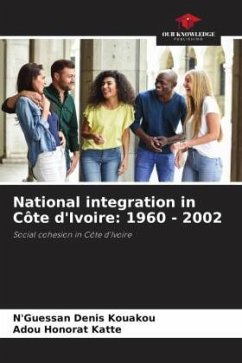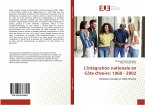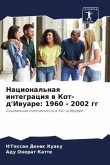After sixty years of French colonial rule (1893-1960), Côte d'Ivoire gained its independence on 7 August 1960, with a heterogeneous population made up of some sixty different peoples. Nothing predisposed these peoples to a "common destiny" before colonisation. During the first three decades of independence, the policy of national integration adopted by Félix Houphouët-Boigny and the traditions of these peoples fostered relative political and social stability, conducive to national unity. However, since the death of Houphouët-Boigny, Côte d'Ivoire has plunged into an unprecedented social fracture linked mainly to political and inter-ethnic conflicts and the coup d'état of 1999. How did this country, long recognised as a political, economic and social model in an Africa in crisis, become a veritable social fracture after the death of President Félix Houphouët-Boigny? This book invites Ivorians, then Africans and other peoples of the world, to understand the necessity of the issue of national integration in post-colonial African states, in general, and in Côte d'Ivoire, in particular.
Bitte wählen Sie Ihr Anliegen aus.
Rechnungen
Retourenschein anfordern
Bestellstatus
Storno








